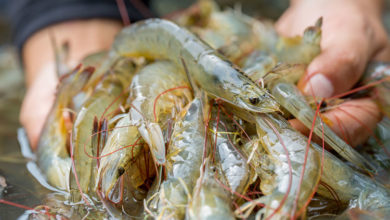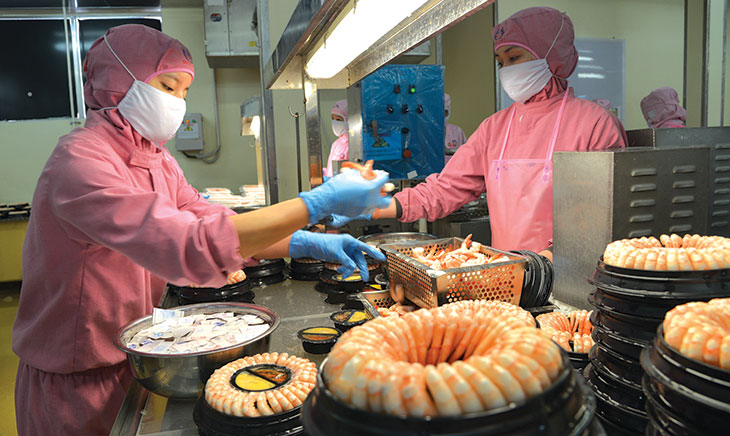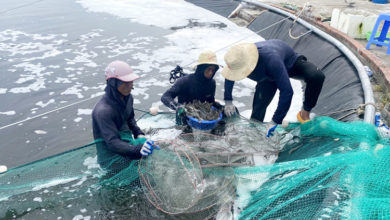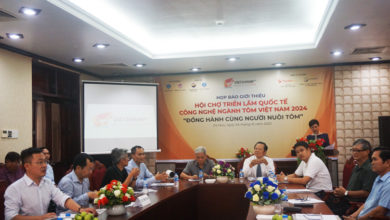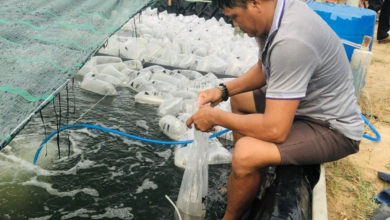Ba Ria – Vung Tau: Shrimp farmers suffer severe losses due to microsporidian disease
Several shrimp farms, cooperatives, and households in Ba Ria - Vung Tau province have been severely affected by microsporidian disease, leading to significant losses and forcing farmers to destroy infected shrimp stocks.
Shrimp stocks destroyed
Nguyen Kim Chuyen, Director of the Quyet Thang Agricultural Cooperative in Ba Ria City, expressed deep concern over the discovery of microsporidian disease (EHP) in the cooperative’s shrimp ponds. The disease, which infects the shrimp’s hepatopancreas, impairs nutrient absorption, weakens immunity, and slows growth. Infected shrimp yield only 10-40% of the production compared to healthy ones.
“After a month of nursing, the shrimp showed no growth. Testing revealed the presence of EHP in the seed stock. We had no choice but to destroy 100% of the shrimp. We can’t risk restocking yet, fearing the disease could spread to future batches,” Chuyen explained.
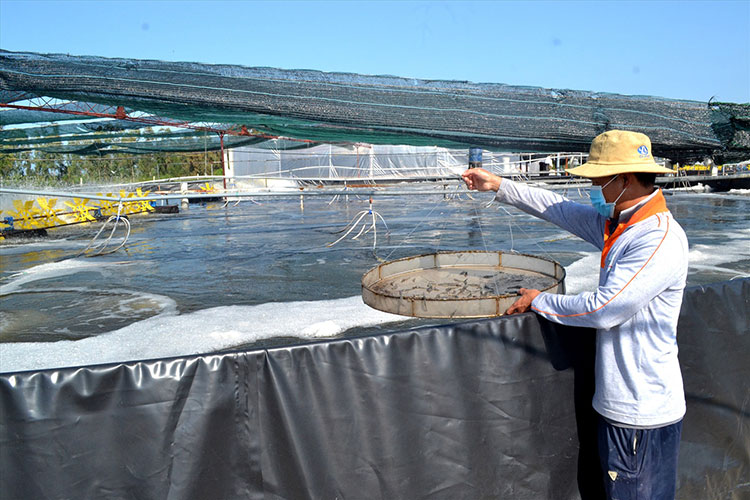
This issue isn’t limited to the Quyet Thang Cooperative. Earlier, the Cho Ben Cooperative in Long Dien district suffered a similar fate, losing an entire shrimp crop to EHP, amounting to losses exceeding VND 1 billion.
In Dat Do district, many shrimp farms have also been affected. Phan Duc Dat, a shrimp farmer in Loc An commune, oversees an 18-hectare farm with 17 shrimp ponds. In the previous season, his entire farm was infected with EHP, resulting in complete crop failure.
“I had to halt operations for two months to thoroughly clean, dry, and treat the ponds to ensure no residual pathogens remained. During this downtime, labor and treatment costs were high, with no income generated. Overall, I lost nearly VND 3 billion,” Dat said.
Strengthening pond sanitation and stock management
According to the Provincial Animal Husbandry and Veterinary Sub-Department, prolonged shrimp farming cycles and repeated use of ponds have degraded the environmental quality, creating a breeding ground for diseases, especially under the current extreme weather conditions.
“Monthly and periodic inspections are conducted, including sample testing from shrimp ponds. While some sporadic cases of EHP have been detected, the disease is not yet widespread enough to declare an outbreak. EHP primarily occurs in high-density lined pond systems, with infection sources traced to broodstock, feed, hatchery environments, and water sources,” said Huynh Van Them, Deputy Director of the Sub-Department.
Ba Ria – Vung Tau currently has nearly 2,900 hectares of shrimp farming area, with white-leg shrimp accounting for 20% and an annual production of over 9,500 tons. The Department of Agriculture and Rural Development regularly monitors water quality, issues environmental warnings, and provides farmers with disease prevention and effective farming guidance.
The Veterinary Sub-Department warned that microsporidian disease could lead to white feces syndrome in shrimp due to spore transmission through the digestive system. Farmers are advised to completely cull shrimp stocks under one month old if infected. Additionally, farmers should suspend farming for at least one cycle (approximately two months) to eliminate pathogens and prevent transmission to subsequent crops.
In the new farming cycle, farmers must source seed from reputable, disease-tested suppliers. Before filling ponds, they should thoroughly clean and disinfect all nursery and grow-out ponds. Water should be filtered and settled before use. Throughout the farming process, regular maintenance of pond surroundings is crucial, including removing debris, vegetation, and algae along the banks, and applying lime to disinfect the area.
VFM


